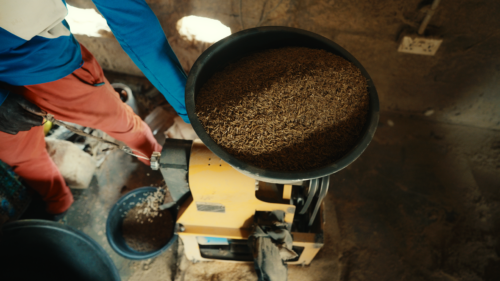
Electric Rice Mills Reduce Reliance On Soaring Diesel Prices In Niger State, Nigeria
The REA-RMI Energizing Agriculture Programme is helping Nigerian farmers build viable businesses by providing efficient and cheaper-to-run electric rice mills with affordable financing options.
This article was originally posted on The Energizing Agriculture Programme’s website on November 8, 2023.
At today’s fuel prices, Mohammed Aliyu’s diesel-powered rice mill sometimes costs him more to run than he makes selling the end product, resulting in losses for his business. His experience is not unique. Smallholder farmers contributing 80 percent of Nigeria’s rice production have seen their diesel costs quadruple since the COVID-19 pandemic. Additionally, since they rely on inefficient equipment that breaks up to half of the grains processed, their poor-quality produce cannot compete with higher-priced imports that have flooded the market as rice has become a staple of the Nigerian diet. Mohammed and his peers struggle as the Nigerian rice market booms. It’s now worth $3 billion annually and is projected to grow annually by 16 percent in the coming years. Federal and state governments are keen to capture the value generated by rice cultivation, processing, and trade within their borders but expensive processing has hindered smallholders from seeing the benefits.
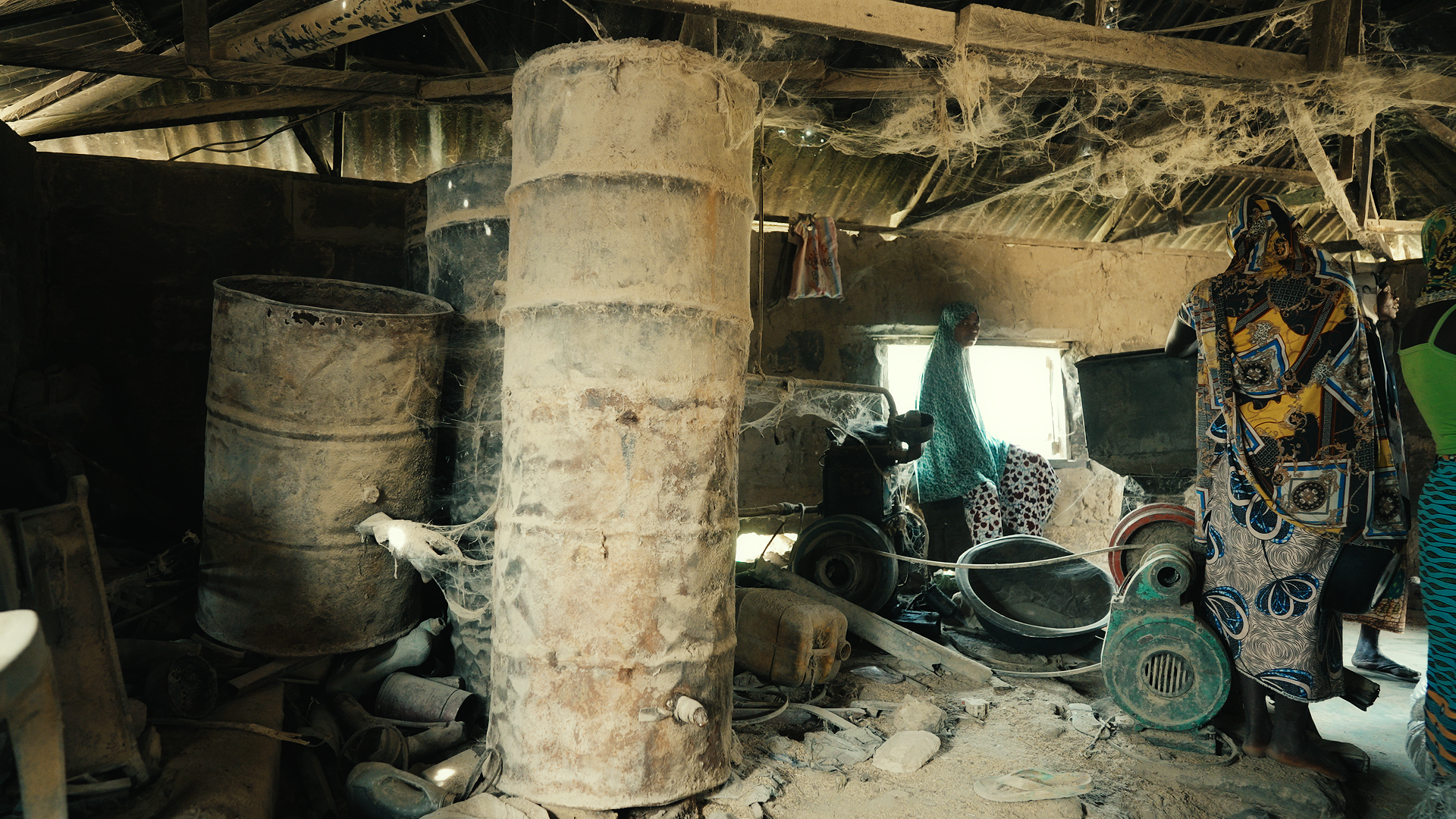
There is a solution to Mohammed’s plight: ditching his diesel-powered mill for an electric one.
Electric rice mills are more efficient and cheaper to power than diesel mills but are outside the reach of Nigeria’s rural population for two main reasons: their steep upfront cost and a dearth of electricity to power them. Just one-quarter of Nigeria’s rural population has access to electricity.
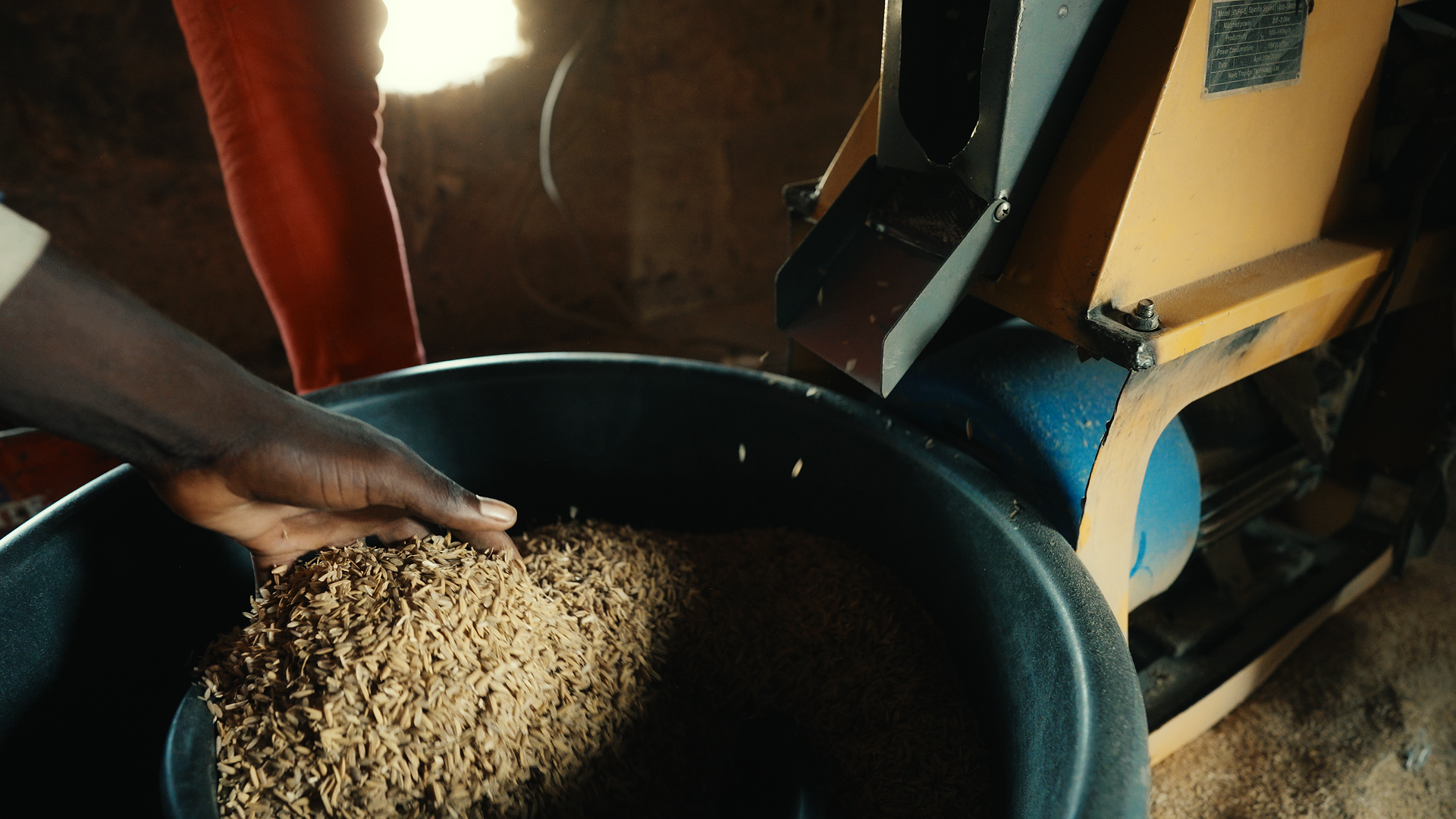
Mohammed is lucky. He lives in Danchitagi community, where a 200 kilowatt peak (kWp) solar minigrid by PowerGen Renewable Energy has provided 24/7 electricity to residents since January 2022. Though he now has access to electricity, his next step is to find the funds to buy a new electric rice mill. The electric mill costs roughly NGN 500,000 (about $500), which is almost 40 percent of Mohammed’s annual income. As in many rural areas, credit availability and uptake in Danchitagi is low because of the population’s lack of credit history, high-interest rates from lenders, and cultural perceptions of debt.
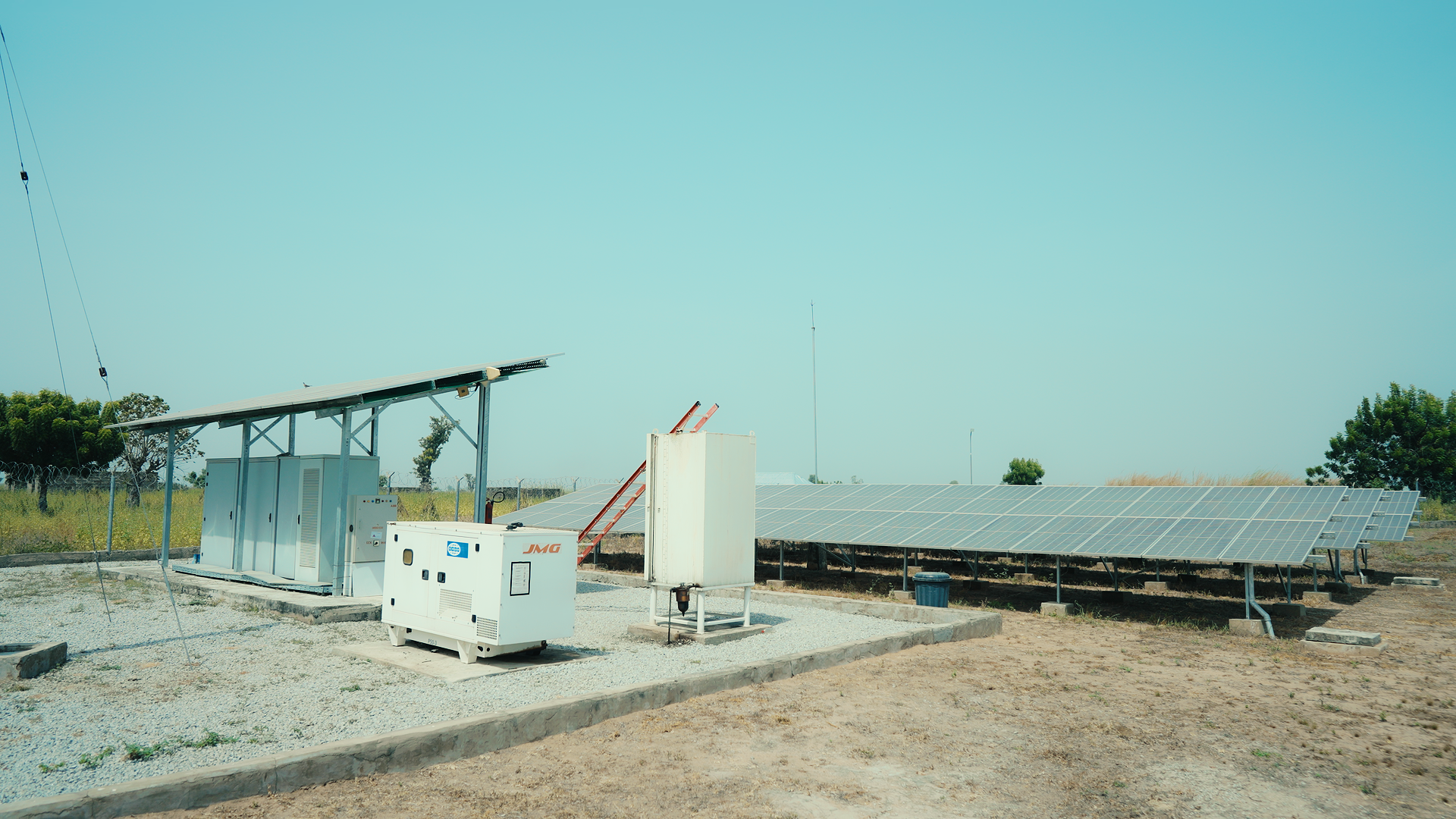
Today, with support from the Energizing Agriculture Programme (EAP), Mohammed leases an energy-efficient EcoPro rice mill from his utility provider on a contract requiring a down payment of just 5% of the total cost.
The EAP is a three-year collaboration between the Rural Electrification Agency and RMI that pairs the growing number of rural minigrids with productive uses of electricity in agriculture. In pursuit of this mission, the EAP brought together Danchitagi’s electricity provider, PowerGen, and an agricultural equipment retailer, Energy Excell, to lease electric rice mills to local processors and allow them to repay the total cost over 18-24 months. This appliance financing scheme has boosted the affordability of improved rice processing equipment and received much interest from farmers who want to grow their businesses. Eighty farmers living in Danchitagi and five neighboring communities that host solar minigrids were ready to make down payments for mills after they saw them trialed.
Mohammed has already seen the benefits of the new mill. It breaks fewer grains compared to his old machine and better removes the rice paddy’s husks. He reported charging 10 percent more per bag due to the improved quality. He’s now paying PowerGen, the local utility, for convenient electricity instead of paying NGN 1,200/liter (about $5.70/gallon) for diesel. In the first six months of the pilot, Mohammed and the other four electric millers have collectively used 4 MWh of renewable electricity from PowerGen minigrids. RMI will estimate energy cost savings and other metrics after more pilot data has been collected. In the meantime, the project collaborators are monitoring how the mills are used by beneficiaries and the effects of the new machinery on their businesses and livelihoods.
Minigrid-powered agricultural processing presents an opportunity to better the lives of farmers such as Mohammed across Nigeria.
However, achieving that feat requires a viable business model for delivering the machines to customers and an ecosystem of investors and companies willing to actualize projects on the ground:
- Electricity providers delivering sufficient, low-cost electricity in rice-producing communities
- Rice mill fabricators and retailers building or importing machines that suit local processors
- Financiers providing affordable credit to processors to reduce the upfront cost of acquiring new mills and allow them to spread repayments over time.
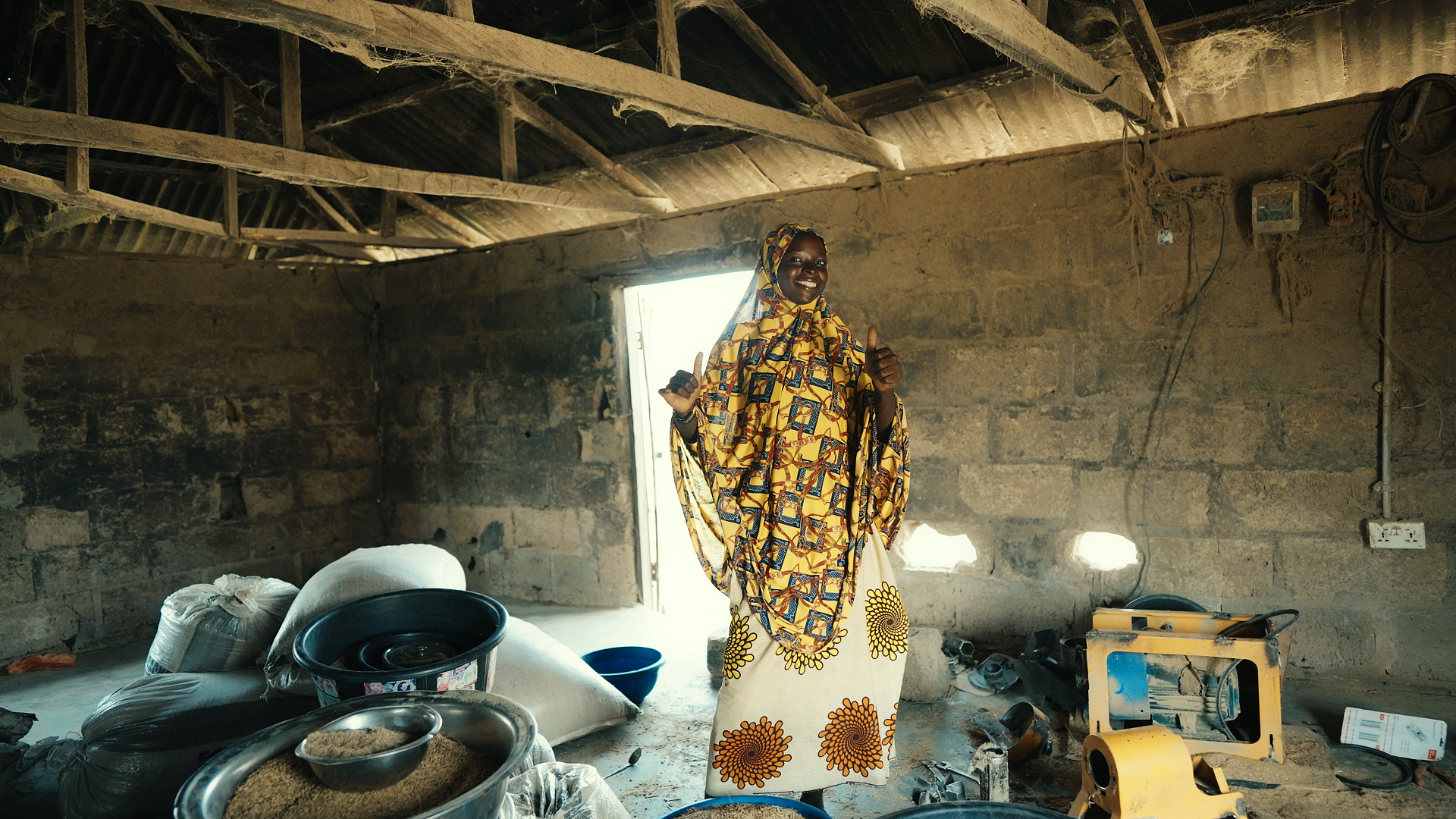
For this reason, the EAP is also bringing together private sector players in the energy, agriculture, and financial services sectors to foster partnerships that will scale electric rice milling to hundreds of rural communities increasingly electrified with minigrids. In doing this, the demand for electricity will rise in rural Nigeria, bringing added revenues to the utilities providing energy services and encouraging further investment in improving energy access rates there. The EAP is proving a new clean energy driven model for rural economic development that allows the agrarian population to realize higher incomes from the value chains they have long been involved in and improve their livelihoods.
Project Partner Spotlight
PowerGen Renewable Energy is a leading private power company operating across Africa. It was founded in 2011 to make renewable energy accessible to more people on the continent. Today, they build and manage power infrastructure to deliver clean, reliable, and affordable electricity to customers. PowerGen has offices in four countries, including Nigeria, hundreds of projects deployed, and tens of thousands of people benefitting from their energy services every day. In Nigeria, PowerGen has deployed fourteen solar minigrids to date, with three more in construction.
Energy Excell Systems and Solutions (EESL) is a renewable energy social enterprise committed to providing customers with high-quality, energy-efficient productive use equipment and appliances. EESL was established in 2013, and they have since partnered with minigrid developers, women’s and farmer’s cooperatives, and community groups to drive demand stimulation and increase household incomes in communities. EESL provides various services in the productive use sector, including equipment supply and sales, equipment financing, training and capacity-building, and after-sales support services.